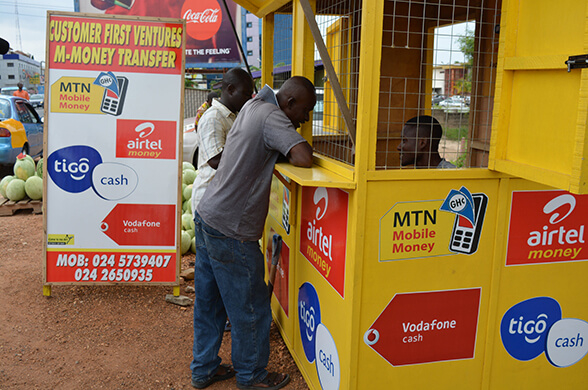The Association of Mobile Money Agents has threatened to embark on strike against the controversial e-levy starting from Thursday, December 23, 2021.
The Association says the levy is “regressive” and threatens the survival of their business.
The Association has thus set Thursday, December 23, 2021, to stage a demonstration against the government’s planned introduction of a 1.75% e-levy.
They added that their operators will also not work on the said date as a result of the demonstration.
They made this known in a press statement issued on Sunday, December 19, 2021, signed by its General Secretary, Evans Otumfuo.
“The Union wishes to inform the public, customers, and users of mobile money that as part of actions to register our total displeasure with the government’s proposed e-levy of 1.75%, we deem it necessary to embark on an Industrial action. As an Association that implements all Mobile Money policies through our operators, we see this levy as very regressive and critical to the survival of our businesses.”
“Consequently, as part of our demonstration on Thursday, December 23, 2021, our services as Mobile Money Agents will not be accessible across the country. All Agents will go on strike, hence all outlets will remain closed. If all efforts remain futile, an Indefinite action would be taken thereafter. For your use and records.”
Meanwhile, Parliament will convene later today, Monday, December 20, 2021, to either approve or reject the controversial e-levy.
The Minority and the Majority are sharply divided over the levy and its implications for financial inclusion and the cash-lite society agenda.
The Minority has said it will do all it can to ensure that the bill does not see the light of day, insisting it is not in the best interest of Ghanaians.
However, the Majority has maintained that the levy will help the government raise the needed revenue to meet the infrastructural demands of the country.
The bill was laid on Friday, December 17, 2021, and was subsequently referred to the Finance Committee of Parliament.
It among others imposes a 1.75% charge on all electronic transactions above a GHC100 threshold.







